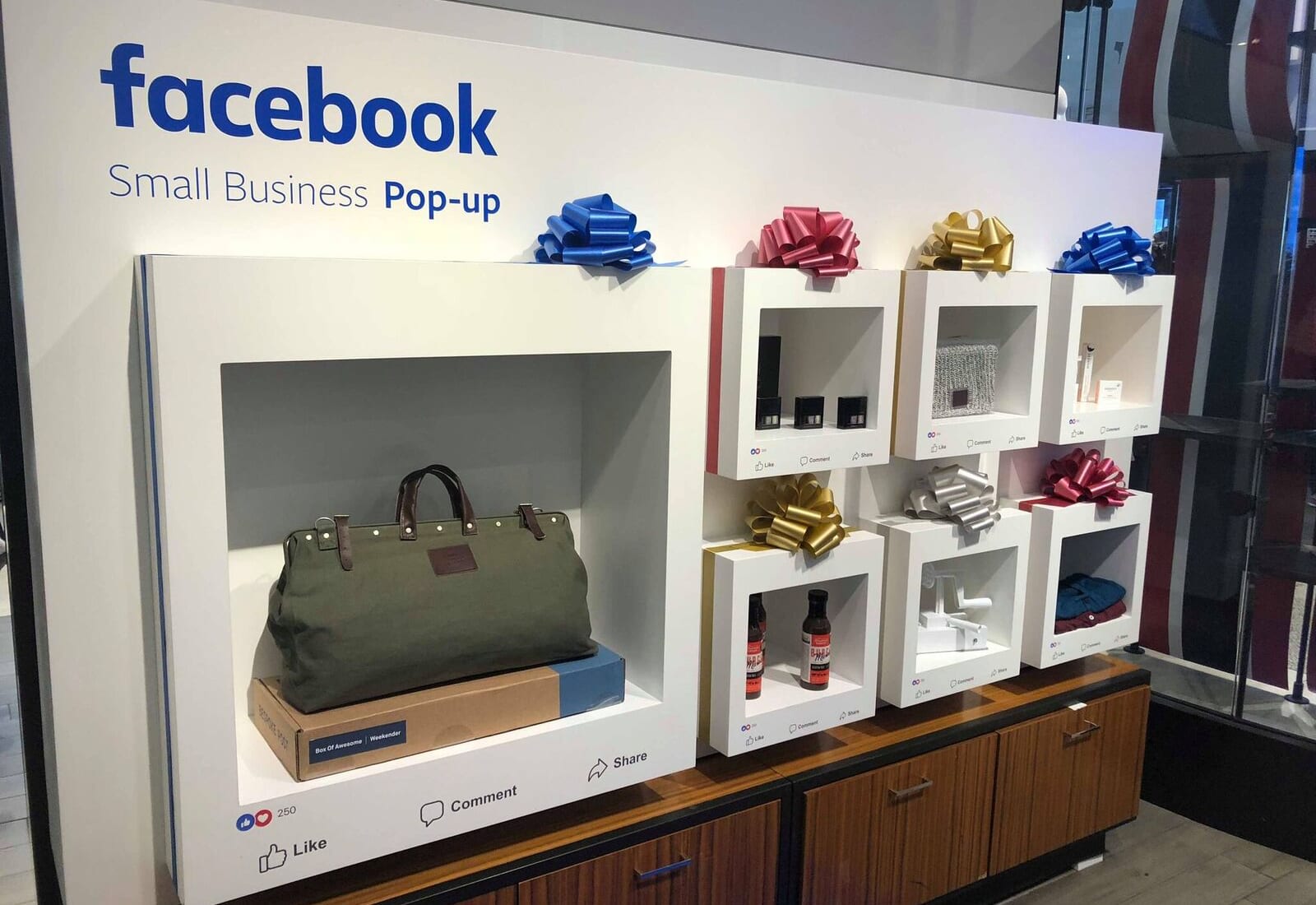Answer

Nov 09, 2018 - 11:47 AM
This might be a first for Facebook, but it’s definitely not the first iteration of this type of strategy. The social media giant is trying to bring disparate concepts together in two ways.
First, it’s an effort to sync the best of brick-and-mortar shopping with the convenience of suggestions offered by your favorite social media site. This feels like the in-person equivalent to seeing a Facebook targeted ad on your newsfeed.
Second, they are bringing together big business and small business. Facebook recognizes that people still love small businesses, and the massive company wants to cash in on that.
It’s a slightly different approach, but other brands have also tried to merge similar concepts. This reminds me of Amazon’s venture into brick-and-mortar bookstores, where they sync the tactile experience of a bookstore with a techy, selected-recommendations design. But pop-ups are cheaper than full-time stores.
Facebook’s approach is a smart one, and it seems likely to do well. They’re giving people the chance for feel-good “ethical consumption” in an ultra-convenient and curated way. For the small businesses it chooses to feature, this opportunity is huge. I’m happy for those business owners, but I still find something disingenuous and off-putting about this approach.
Ultimately, it’s big business masquerading as small business. While these small companies will gain exposure, and get to keep all the sales revenue, I’d bet that Facebook stands to gain the most from this in the long run. Its revenue growth has experienced huge slowdowns lately, and this is likely an attempt to halt the drops in share prices and popularity.
The company may be trying to re-establish trust and relatability after its huge data privacy scandal earlier this year. It’s also likely seeking to get more small businesses to run ads on the site.
Macy’s, the host of these pop-ups, also stands to gain a lot from this connection to small business. More people will walk through the doors of Macy’s, and might see the faltering big-box store in a different light. But Macy’s hasn’t really changed: this is also part of its strategy to reclaim falling profits.
While I doubt this viewpoint will be shared by many consumers, I’m wary of a brand’s attempt to use small-business associations for redemption or relatability.
Facebook might support a small handful of small businesses this way, but it remains a giant that has handled user information irresponsibly to make huge profits. The company is not your friend, but it’s posing as one. Facebook can be a useful platform for small businesses, but it can also be a dangerous one.
The popular philosopher Slavoj Zizek has interesting, and I think accurate, thoughts on the problem of “ethical consumption” like what Facebook is trying to promote. He warns against buying into an inauthentic lifestyle, even if it sounds true to our aspirations.
We want to buy from the coffee shop that says its beans are ethically produced, even though we’ll probably never do any research to see if those claims are true. We buy things that are emblems of what we really want. But this type of consumption isn’t necessarily any more ethical than other types.
In this case, it’s shopping at a small-business-via-Facebook, rather than actually walking into an under-recognized small business. It’s not that buying from small businesses is bad in any form. But it’s risky if the curated-by-big-businesses model catches on: someday, it might be the only way a small business can get any attention at all.









Add New Comment